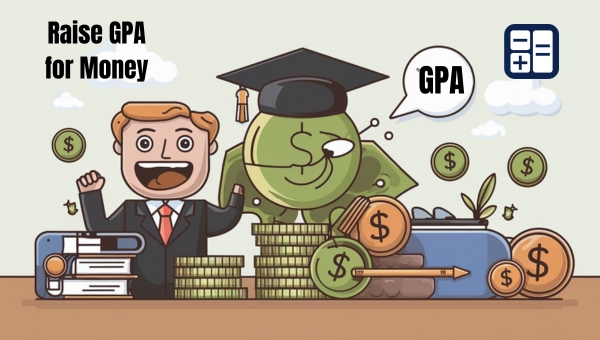Does a Perfect GPA Guarantee Success?
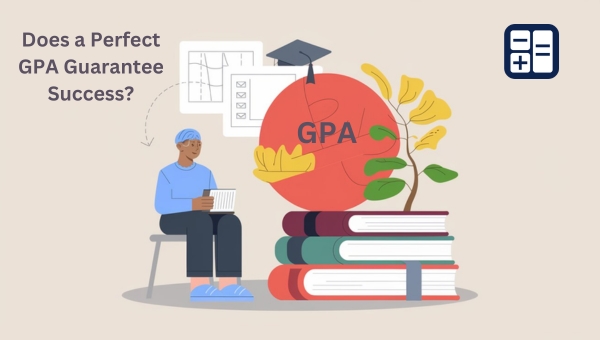
When we ask, “Does a Perfect GPA Guarantee Success?” it’s essential to look beyond the numbers. This article dives into the perceptions of a perfect GPA, how it impacts career opportunities, and the limitations it carries. We’ll explore the importance of a broader skill set, real-world challenges, and mental health implications.
Additionally, we’ll share real-life examples and case studies of successful individuals without perfect GPAs. Finally, we’ll touch on balancing academics with extracurricular activities and networking. By the end, you’ll have a comprehensive understanding of what truly contributes to success.
The Importance of a Perfect GPA
Achieving a perfect GPA is often seen as the pinnacle of academic success. But does it truly guarantee success in life? Let’s explore how society and educational institutions view a perfect GPA and how it impacts initial career opportunities.
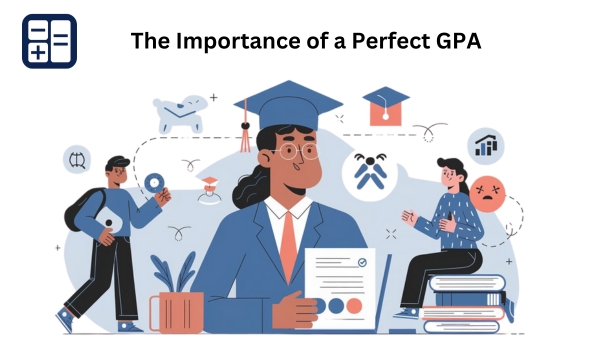
Perceptions of a Perfect GPA
A perfect GPA is widely regarded as a symbol of academic excellence. Educational institutions often use it as a benchmark to measure a student’s intelligence and dedication.
- Society’s View: Many people equate a high GPA with hard work and discipline.
- Educational Institutions’ View: Schools and universities frequently use GPA as a criterion for scholarships and honors programs.
- Parental Expectations: Parents often pressure their children to achieve high GPAs, believing it will secure their future.
Initial Career Opportunities
A perfect GPA can open many doors when it comes to job opportunities and graduate school admissions. Here are some key points to consider:
- Job Opportunities:
- First Impressions: Many employers use GPA as an initial screening tool. A perfect GPA can help your resume stand out in a crowded job market.
- Interviews: During job interviews, a high GPA can serve as evidence of your hard work, ability to learn quickly, and commitment to excellence.
- Specific Fields: In fields like finance, law, and consulting, companies often seek out candidates with high GPAs, believing they possess a strong work ethic and intellectual capability.
- Graduate School Admissions:
- Competitive Edge: When applying to graduate schools, a perfect GPA can give you a competitive edge. Admissions committees often look for students who have demonstrated exceptional academic performance.
- Scholarships and Fellowships: Many scholarships and fellowships are awarded based on academic merit. A perfect GPA can increase your chances of receiving financial aid to support your further studies.
- Research Opportunities: Faculty members might be more inclined to offer research positions to students with strong academic records, believing they are well-prepared for the challenges of advanced study.
A perfect GPA, while not the only factor, certainly plays a crucial role in shaping the initial phases of one’s career and academic journey.
The Limitations of a Perfect GPA
A perfect GPA can be impressive, but it doesn’t tell the whole story. While it can open doors, it has its limitations. Let’s explore how other factors play a crucial role in achieving success.
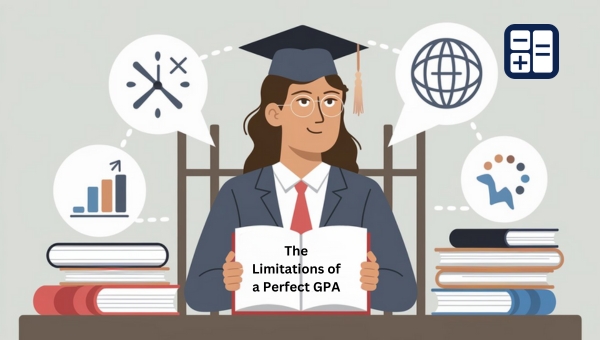
Skill Set Beyond Grades
Grades are important, but they aren’t the only measure of potential. Skills like communication, problem-solving, and teamwork are equally critical.
- Communication: Being able to express ideas clearly and effectively is vital in almost every field. Good communication helps in collaborating with colleagues, presenting ideas, and even in negotiating.
- Problem-Solving: Real-world problems often require creative and quick solutions. A perfect GPA doesn’t necessarily mean one can think on their feet or handle unexpected challenges.
- Teamwork: Many jobs require working in teams. The ability to work well with others, share responsibilities, and support team members is essential for achieving common goals.
Real-World Challenges
Facing real-world challenges requires more than just academic knowledge. Practical experience and adaptability are key components.
- Practical Experience: Hands-on experience helps in understanding how theories apply in real situations. Internships, part-time jobs, and volunteer work can provide valuable insights.
- Adaptability: The ability to adapt to new situations and learn from them is crucial. Changing technologies, market demands, and even job roles mean that being flexible and open to learning is essential.
Mental Health Implications
Maintaining a perfect GPA can come with significant pressure, impacting mental health.
- Stress: The constant need to achieve perfection can lead to high levels of stress. This can affect both physical and mental well-being.
- Burnout: Continuous pressure to perform can result in burnout. This can lead to a loss of motivation, fatigue, and even depression.
- Balance: It’s important to find a balance between academic goals and personal well-being. Taking time for relaxation, hobbies, and social activities can help maintain mental health.
Understanding these limitations can help in creating a more balanced and fulfilling approach to education and career development.
Case Studies and Real-Life Examples
When considering the question, “Does a Perfect GPA Guarantee Success?”, it’s essential to examine real-life examples and case studies. Looking at the experiences of successful individuals and understanding employers’ perspectives can provide valuable insights.
Successful Individuals Without Perfect GPAs
Many successful individuals did not have perfect GPAs but still managed to excel in their fields. Their stories are a testament to the fact that academic performance is not the only indicator of future success.
Steve Jobs: The co-founder of Apple Inc., Steve Jobs, was a college dropout. His innovative vision and entrepreneurial spirit propelled Apple to become one of the most valuable companies in the world. Jobs’ success highlights the importance of creativity, vision, and perseverance over academic scores.
Oprah Winfrey: Oprah Winfrey, a media mogul and philanthropist, did not have a perfect GPA. Despite facing numerous challenges, her communication skills, empathy, and determination helped her build a media empire. Oprah’s journey underscores the value of personal qualities and resilience in achieving success.
Bill Gates: Another college dropout, Bill Gates, co-founded Microsoft and became one of the wealthiest people in the world. His technical skills, strategic thinking, and ability to seize opportunities were critical to his success. Gates’ story shows that practical skills and strategic insight can outweigh academic performance.
These examples illustrate that while a perfect GPA can open doors, it is not the sole determinant of success. Skills, personal qualities, and strategic thinking play crucial roles in shaping a successful career.
Employers’ Perspective
Employers often look beyond academic excellence when considering candidates for job positions. Here are some factors that are equally, if not more, important:
- Communication Skills: The ability to communicate effectively, both verbally and in writing, is vital in any workplace. Employers value candidates who can convey ideas clearly and work well with others.
- Problem-Solving Abilities: Companies seek individuals who can think critically and solve problems efficiently. The ability to approach challenges with innovative solutions is highly prized.
- Teamwork: Collaboration is a key aspect of most jobs. Employers look for candidates who can work well in teams, contribute to group efforts, and foster a positive work environment.
- Adaptability: The ability to adapt to changing circumstances and learn new skills quickly is essential in today’s fast-paced world. Employers value candidates who can stay flexible and handle unexpected challenges.
- Work Experience: Practical experience gained through internships, part-time jobs, or volunteer work can be more valuable than a high GPA. Employers appreciate candidates who have hands-on experience and understand the dynamics of a real-world work environment.
- Cultural Fit: Employers often seek candidates who align with the company’s values and culture. A good cultural fit can lead to greater job satisfaction and better overall performance.
By considering these factors, employers can identify candidates who are well-rounded and capable of contributing to the organization’s success. This perspective emphasizes that a perfect GPA is just one of many attributes that can lead to a successful career.
Balancing Academics with Other Aspects
Balancing academics with other aspects of life is essential for well-rounded development. While maintaining good grades is important, engaging in extracurricular activities and building a solid network can significantly enhance personal and professional growth. Let’s delve into these crucial areas.
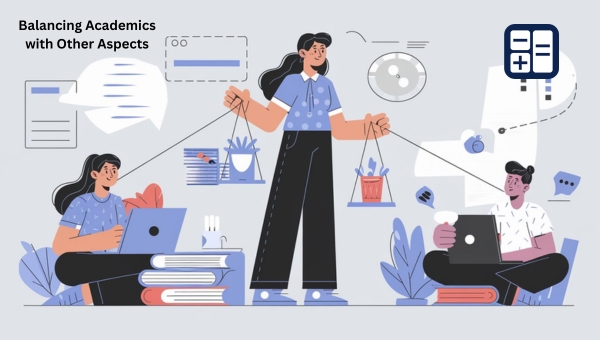
Extracurricular Activities
Engaging in extracurricular activities is vital for overall personal development. These activities provide opportunities to develop various skills that are not typically covered in academic curricula.
- Skill Development: Extracurricular activities help in building essential skills such as leadership, time management, and teamwork. For instance, participating in sports can teach discipline and cooperation, while joining a debate club can enhance public speaking and critical thinking skills.
- Stress Relief: These activities also serve as a great way to relieve academic stress. Engaging in hobbies or sports can provide a much-needed break from studies, helping to maintain mental well-being.
- Social Connections: Extracurriculars offer a platform to meet and interact with peers who share similar interests, fostering friendships and creating a support network. This can be particularly beneficial for personal growth and emotional health.
- College and Job Applications: Having a rich portfolio of extracurricular activities can make college and job applications stand out. It shows that the individual is well-rounded and has interests beyond academics.
Networking Opportunities
Networking plays a crucial role in achieving career success beyond just academics. Building a strong network can open doors to various opportunities that grades alone may not provide.
- Career Guidance: Networking can connect students with mentors who can offer valuable advice and guidance in their chosen career paths. This can be immensely helpful in making informed decisions about future endeavors.
- Job Opportunities: Many job openings are filled through referrals and connections. Having a robust network can increase the chances of learning about and securing these opportunities.
- Skill Enhancement: Interacting with professionals and peers in the same field can provide insights into necessary skills and industry trends. This knowledge can be crucial for staying competitive in the job market.
- Personal Growth: Networking helps in building communication and interpersonal skills, which are essential in virtually every professional setting. These skills can significantly enhance one’s ability to work effectively in team environments.
Balancing academics with extracurricular activities and networking can lead to a more fulfilling and successful life. These aspects complement academic achievements and prepare individuals for the real world.
FAQs
What do employers look for beyond academic excellence?
Employers often seek candidates with a well-rounded profile, including practical experience, soft skills, and a proactive attitude.
Why are extracurricular activities important?
Engaging in extracurricular activities helps in personal development and provides a break from academic pressures. It also enhances various skills.
How does networking contribute to career success?
Networking can open up opportunities and provide valuable insights. Building connections often plays a crucial role in career advancement.
Conclusion
While a perfect GPA can open doors and provide initial opportunities, it’s important to recognize its limitations. Success in the real world often requires a combination of practical skills, adaptability, and mental well-being. Balancing academics with other aspects of life, like extracurricular activities and networking, can lead to a more holistic and fulfilling career path.
To continue exploring topics that bridge the gap between academics and real-world success, be sure to check out more of our insightful blogs.
